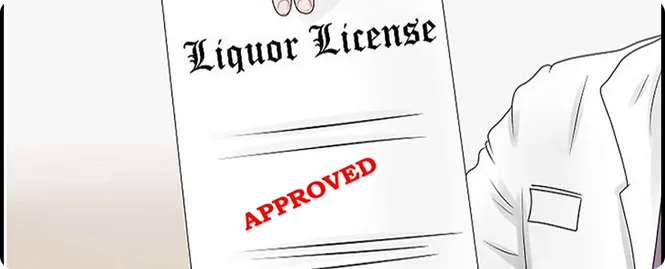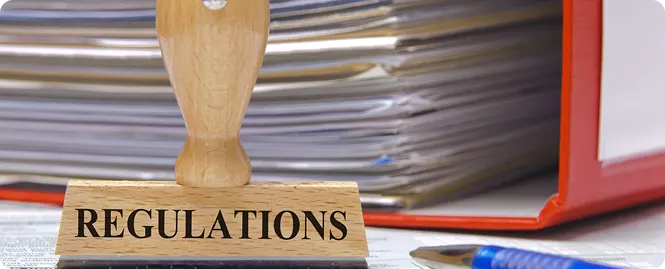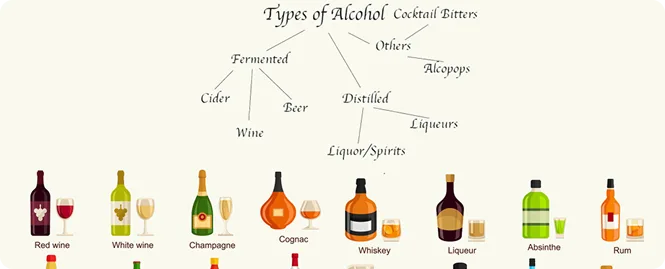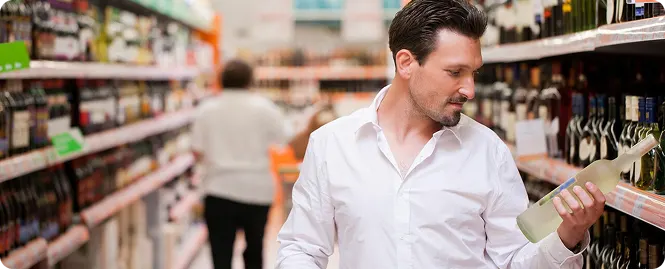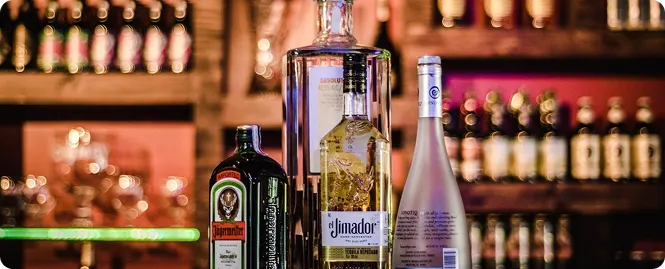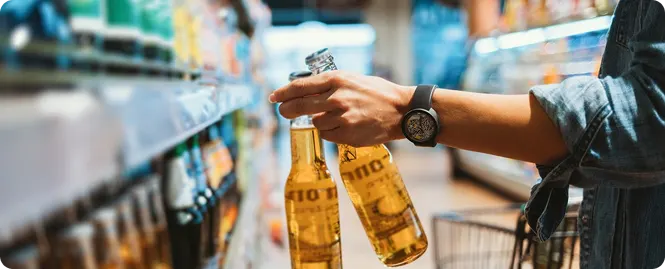Can Gas Stations Sell Liquor?
Table of Contents
Key Takeaways
-
Gas station liquor sales are heavily regulated, with each state setting its own laws, licensing requirements, and restrictions. Some states permit full liquor sales, while others limit sales to beer and wine or prohibit them entirely.
-
Depending on state laws and license types, gas stations may be allowed to sell beer, wine, or spirits. Some states restrict sales to lower-proof alcoholic beverages, while others require separate areas for liquor storage and checkout.
-
Selling liquor can increase revenue, attract more customers, and boost overall sales of convenience items. However, gas station owners must navigate strict compliance rules, licensing fees, and potential liabilities.
-
Compliance with liquor laws, managing age verification, and adhering to alcohol sales hours are key challenges. Gas stations must also consider community concerns, potential theft risks, and liability issues associated with alcohol sales.
-
To legally and successfully sell liquor, gas stations should obtain the appropriate liquor license, train employees on responsible alcohol sales, follow state-specific regulations, and implement strict ID verification processes to prevent underage sales.
Selling liquor at gas stations is a hot topic, sparking debate between convenience and caution. On one side, it’s a win for business owners looking to boost sales, just like grocery and convenience stores. On the other hand, concerns about underage sales, drunk driving, and community impact fuel opposition. With liquor laws differing across states, gas station owners must carefully balance profitability with responsibility in a space where every sale has legal strings attached.
Selling alcohol isn’t as simple as stocking shelves—it’s a legal and operational puzzle. From obtaining the right liquor license to navigating alcohol sales hours and storage rules, every state has its own playbook. Adherence to specific licensing fees, insurance costs, and potential fines for non-compliance is a requirement. Employees need proper training, and security measures must be tight. For gas stations, selling liquor is a high-reward move, but only if it is done the right way.
Legal Considerations for Selling Liquor at Gas Stations
Alcohol sales at gas stations depend on state laws. Some allow full liquor sales, while others restrict them to beer and wine. In Kansas, grocery and convenience stores, including gas stations, can sell beer containing no more than 6.0% alcohol by volume, with stronger beverages limited to liquor stores.
Gas stations need specific liquor licenses, varying by state. Some states require additional permits, employee training, or restrictions on alcohol placement. For example, in Connecticut, convenience stores are treated like grocery stores. To qualify for a liquor license, they must have most of their sales from “grocery items,” like food.
Gas stations must adhere to strict age verification protocols to prevent underage alcohol sales. The minimum age for selling alcohol in some states is 18 to 20 years, while others require sellers to be at least 21. Sales hours also differ, with some banning alcohol on Sundays or late nights.
State Laws and Regulations
Liquor laws at gas stations are a legal patchwork. Some states let you grab a bottle of wine with fuel, while others barely allow selling beer. In certain states, being able to sell alcohol is tightly controlled, while states like California offer more flexibility; hence, it’s a state-by-state balancing act.
In Texas and Florida, buying beer at a gas station is routine, but in Pennsylvania, alcohol sales are mostly limited to state-run stores. Meanwhile, states like Alabama and South Carolina impose restrictions on liquor sales, keeping more potent drinks off gas station shelves. The rules vary widely across the map.
Even in states where gas stations can sell alcohol, local governments have the final say. Some counties ban sales entirely, while others limit hours or require additional permits. Dry counties in states such as Kentucky and Arkansas make alcohol nearly impossible to find, proving local laws can override state permissions.
Types of Alcohol Gas Stations Can Sell
Gas stations can sell various types of alcohol, depending on the state laws. Some allow only lower-alcohol beverages, while others permit stronger options. Here’s what’s typically available at gas stations:
Beer
Beer is the most commonly sold alcoholic beverage at gas stations. Most states allow the sale of regular and light beers, but alcohol content restrictions vary. Some states limit beer sales to lower ABV versions, while others permit stronger options. Craft beers and imports may be available in some locations.
Wine
Many gas stations sell wine, but options vary by state. Some allow only low-alcohol wines, while others permit full-strength varieties. Typically, gas stations stock budget-friendly and convenience-sized bottles. Premium wines are usually found in specialty stores, but some locations offer a decent selection of reds, whites, and even sparkling wines.
Spirits (Liquor)
Liquor sales at gas stations are heavily restricted. While some states allow the sale of spirits like whiskey, vodka, and rum, others require purchases to be made at designated liquor stores. When permitted, spirits are often available in smaller bottles, making them a convenient option for travelers and quick purchases.
Cider
Cider falls into a legal gray area, classified as either beer or wine, depending on alcohol content and state regulations. Hard ciders with lower ABV are widely available, while stronger varieties may be restricted. Many gas stations carry popular brands, offering customers a refreshing, fruit-based alternative to beer and wine.
Ready-to-Drink Alcoholic Beverages (RTDs)
Pre-mixed cocktails and flavored alcoholic beverages are growing in popularity at gas stations. These include spiked seltzers, canned margaritas, and boozy lemonades making it a favorite choice for consumers in a rush. Regulations vary, some states treat them like beer and wine while others classify them as spirits, limiting availability.
Fortified Wine (e.g., sherry, vermouth)
Fortified wines contain added spirits, increasing their alcohol content. Some states allow gas stations to sell options like sherry, port, or vermouth, while others restrict them to liquor stores. When available, they are typically sold in smaller bottles and budget-friendly brands, catering to customers seeking stronger yet affordable alcoholic choices.
Low-Alcohol Beer and Malt Beverages
Low-alcohol beer and malt beverages are widely available at gas stations, often marketed as “near beer” or flavored malt drinks. These beverages typically contain less than 3.2% ABV, making them legal in stricter states. Popular options include non-alcoholic beers, fruit-flavored malt drinks, and light beer varieties for casual drinkers.
Advantages of Selling Liquor at Gas Stations
Selling liquor at gas stations can boost revenue and attract more customers. It provides convenience for shoppers and increases profit margins. Here are some key benefits for gas station owners:
Increased Revenue and Profitability
Adding liquor to gas station inventory can significantly boost revenue. Alcohol has a high demand, which ensures steady sales throughout the year. With higher markups than many other products, liquor sales contribute to greater profitability, helping gas stations diversify income streams beyond fuel and snacks, especially in competitive retail environments.
Attracting More Customers and Foot Traffic
Offering alcohol can bring in a broader customer base; people stopping for fuel or snacks may also pick up beer or wine, increasing overall sales. Gas stations located near residential areas or highways benefit from impulse purchases, drawing in customers who might otherwise shop at liquor stores or grocery chains.
Convenience for Customers
Gas stations selling liquor provide a one-stop shopping experience. Customers can grab fuel, snacks, and alcohol in one trip, saving time. This convenience appeals to individuals who are busy and passing travelers, making gas stations a go-to spot for quick purchases, especially in areas where liquor stores have limited hours.
Higher Profit Margins on Alcohol Sales
Alcohol has significantly higher profit margins compared to other gas station products being sold. Unlike fuel, which has fluctuating margins, liquor sales consistently provide strong returns. Specialty drinks, craft beers, and premium spirits can be marked up even more, allowing gas stations to maximize earnings without drastically increasing operational costs.
Competitive Edge in High-Traffic Areas
Selling alcohol can set a gas station apart from its competitors. In high-traffic locations, stations with liquor options attract more customers than those without. This added convenience encourages repeat business and customer loyalty, making the gas station a preferred stop for both travelers and local residents seeking quick alcohol purchases.
Challenges and Drawbacks of Selling Liquor at Gas Stations
Selling liquor at gas stations offers benefits and some challenges. Legal restrictions, security concerns, and compliance issues can create obstacles. Here are some key drawbacks that station owners may face:
Navigating Complex Liquor Laws and Regulations
Liquor laws vary by state and locality, making compliance a challenge for gas station owners. Some areas impose strict limitations on alcohol sales, requiring businesses to navigate complicated regulations. Failure to comply can result in hefty fines or license revocation, making it essential to stay updated on changing legal requirements.
Obtaining and Renewing Liquor Licenses
Securing a liquor license is often lengthy and expensive. Gas stations must meet specific criteria, submit extensive paperwork, and pay substantial fees. Additionally, licenses typically require periodic renewal, with potential restrictions or changes in regulations. Any violations could threaten the renewal of your license, making it essential to maintain compliance.
Higher Insurance Costs Due to Liquor Liability
Selling alcohol increases liability risks, leading to higher insurance premiums. Gas stations must carry liquor liability insurance to cover incidents like underage sales or alcohol-related accidents. These policies can be costly, especially in high-risk areas. Business owners must factor in these additional expenses when evaluating the profitability of liquor sales.
Increased Risk of Theft and Shrinkage
Alcohol is a high-theft item, making gas stations more vulnerable to shoplifting and employee theft. This makes managing inventory more complex, further requiring better security measures such as surveillance cameras and locked storage areas. Losses from theft can cut into profits, making it crucial to implement strict theft prevention strategies.
Community Opposition and Zoning Restrictions
Local communities may oppose liquor sales at gas stations, citing concerns about public safety, underage drinking, or increased crime. Some areas impose zoning restrictions prohibiting alcohol sales near certain locations, such as schools, churches, or residential neighborhoods. Overcoming these challenges requires community engagement, adherence to regulations, and responsible alcohol retail practices.
Best Practices for Gas Stations Selling Liquor
Gas stations must follow best practices to sell liquor successfully, ensuring compliance, safety, and profitability. Implementing strong policies and responsible strategies can help. Here are key best practices to consider:
Strict Age Verification and ID Checks
Gas stations must enforce strict age verification to prevent underage alcohol sales. Employees should check valid IDs for every purchase, using scanning technology when available. Failing to verify age can result in fines, legal penalties, and license revocation. Consistently enforcing ID checks ensures compliance and maintains a responsible business reputation.
Employee Training on Responsible Alcohol Sales
Proper training equips employees to handle alcohol sales responsibly. Staff should learn how to identify fake IDs, refuse sales to intoxicated customers, and follow local liquor laws. Many states require mandatory training programs. Well-trained employees reduce legal risks and ensure a safe, professional environment for both customers and business owners.
Compliance with Local and State Alcohol Laws
Adhering to all liquor laws is essential for avoiding fines and maintaining a valid license. Gas stations must stay updated on the current regulations regarding alcohol sales hours, quantity limits, and restricted areas. Regular audits and compliance checks help prevent legal issues and ensure smooth, long-term operations in selling liquor.
Implementing Security Measures to Prevent Theft
Alcohol is definitely a high-theft item, which requires strong security measures. Installing surveillance cameras, locking high-value items, and training employees to monitor suspicious behavior can deter shoplifting. Security policies should also address internal theft, ensuring accountability among staff. A proactive approach to theft prevention protects both inventory and business profitability.
Properly Storing and Displaying Alcohol in Designated Areas
Alcohol should be stored and displayed securely in order to prevent theft and unauthorized access. Many gas stations place liquor behind counters or in locked cabinets. Clear signage can help customers locate products while ensuring compliance with regulations. Organizing alcohol in designated areas enhances store safety and streamlines sales operations.
Impact of Selling Liquor on Gas Station Operations
Selling liquor at a gas station requires making strategic adjustments to the store’s layout, staffing, and operating hours. It is often required for the alcohol to be displayed in designated sections to meet legal requirements and prevent theft. Additional staff may be necessary to handle age verification and inventory management. Extended hours are an option, but some states impose strict alcohol sales limits. Adapting operations to these factors ensures compliance, maximizes sales, and maintains efficiency.
Introducing liquor sales can reshape a gas station’s brand image and community perception. Some customers may appreciate the convenience, while others view it as a negative change. Responsible sales practices, community engagement, and regulation compliance help maintain trust. Therefore, stations must balance profitability with public concerns to avoid reputational damage.
Conclusion
Selling liquor at gas stations involves navigating complex regulations, securing the right licenses, and complying with local laws. Age verification, alcohol sale restrictions, and zoning laws vary by state and require careful adherence. Proper security measures and staff training are essential to ensure responsible sales and prevent legal complications.
While liquor sales can increase revenue and attract more customers, they also come with challenges like higher insurance costs, theft risks, and community opposition. Gas stations must weigh the financial benefits against regulatory hurdles to determine feasibility. For those in permissive states, responsible alcohol sales can be a lucrative addition.
Selling liquor increases liability risks, making insurance essential for gas stations. Liquor liability coverage protects against claims related to intoxicated customers, underage sales, or property damage. General liability, theft, and property insurance further safeguard the business. Having comprehensive coverage ensures financial security and compliance with legal requirements in alcohol sales.


